Women in Leadership
March celebrates Women’s History Month. And March 8th was International Women’s Day. The theme for the day this year was: #ChooseToChallenge. A challenged world is an alert world.
Individually, we're all responsible for our own thoughts and actions - all day, every day.
We can all choose to challenge and call out gender bias and inequality. We can all choose to seek out and celebrate women's achievements. Collectively, we can all help create an inclusive world.
Women of the world want and deserve an equal future free from stigma, stereotypes and violence; a future that’s sustainable, peaceful, with equal rights and opportunities for all. To get us there, the world needs women at every table where decisions are being made.
The research shows women’s rights and leadership are under threat, and even more exacerbated due to the COVID-19 pandemic. Current projections show that gender equality in the highest positions of power will not be reached for another 130 years. This year’s International Women’s Day rings the alarm on rising threats to gender equality and highlights the need to build back better for a more gender-equal future.
The official UN commemoration, under the theme of “Women in leadership: Achieving an equal future in a COVID-19 world on the way to the Generation Equality Forum”, featured global leaders, including the United Nations Secretary-General António Guterres, the Prime Minister of Iceland Katrín Jakobsdóttir, activist and actor Eva Longoria, and Somaya Faruqi, member of the Afghan Girls Robotics Team.
In addition to offering reflections on the theme of the day, they called for redoubling of efforts to increase women’s participation in all aspects of leadership and public life, and on finding new solutions that leave no woman or girl behind.
António Guterres, the UN Secretary-General, said: “Gender equality is essentially a question of power. A male-dominated world and a male-dominated culture will yield male-dominated results. But the opportunity of man-made problems – and I choose these words deliberately – is that they have human-led solutions. These solutions can only be found through shared leadership and decision-making; and through the full realization of women’s rights, including the right to equal participation. Realizing women’s rights will benefit all of us.”
This International Women’s Day comes at a moment where evidence is growing that the pandemic is having a disproportionate and severe impact on women’s rights – from their role as front-line healthcare workers often without adequate protection, to the loss of jobs as the informal economy shrinks, and the alarming spike in domestic violence and unpaid care burden. Now striking new data on women’s leadership further emphasizes the imperative for action:
Only three countries globally have 50 percent or more women in parliament, and the same amount have no women in parliament at all.
Women under 30 years- make up less than one percent of parliamentarians globally.
Women parliamentarians reported in one survey that they experienced nearly twice as much exposure to torture, ill-treatment, and acts of violence compared to men.
Despite the plaudits given to many women leaders for their COVID-19 response, only 3.5 percent of the COVID-19 task forces examined in 87 countries had gender parity. An analysis of COVID-19 task teams from 87 countries found only 3.5 percent of them had gender parity.
In addition, women are also at the forefront of the battle against COVID-19, as front-line and health sector workers, as scientists, doctors, and caregivers, yet they get paid 11 percent less globally than their male counterparts.
Research shows that when women are in power, overlooked policy issues, such as ending violence against women, childcare services and healthcare get more attention; there is often less government corruption and political parties are more likely to work together.
For example, in Liberia during her first term as President, Ellen Johnson Sirleaf introduced a specialized court to prosecute violence against women. Norway’s former Prime Minister Gro Harlem Brundtland, and current German Chancellor Angela Merkel, both strengthened family leave provisions and increased funding for early childhood education.
Achieving equality in leadership and decision-making is possible. The Generation Equality Forum’s Action Coalition on Feminist Movements and Leadership has developed plans to achieve gender parity in executive and legislative positions in 50 countries by 2026.
UN Women has also put forth a series of concrete recommendations from improving legal frameworks, especially through adopting and enforcing gender quotas, addressing social norms and violence against women in public life, and increasing funding to support women candidates.
There has been an alarming shadow pandemic of violence against women during the COVID-19 crisis. There are four critical areas that need work: Funding for organizations; response to survivors’ needs; prevention of violence and collection of data and Action Circulars on those topics. The plan is for information to be released throughout the year.
My call to action
If you are a woman in leadership, make sure that your voice is heard. Don’t be afraid to question and challenge when issues of equality are ignored. Be a model for others and make sure you mentor other women to become leaders.
If you are a male leader, every day, through your actions, and in the way you lead, talk, question, and act, you can challenge norms, transform habits, change laws, take action and inspire others to create a world without gender-based discrimination.
My contribution
Because of all the above reasons, women tend to experience more transitions throughout their lives than men. Because of this, and because I myself have experienced many transitions, I’m hosting a FREE 5-day Transition Survival Challenge Starting on March 30.
if you are a Woman in Transition or know of one, There is an open invitation for you to join us. You can register @ https://challenge.transformativeconversations.com/challenge-registration21
See you there!
Note: This article is based on a Press release: by UN Women

